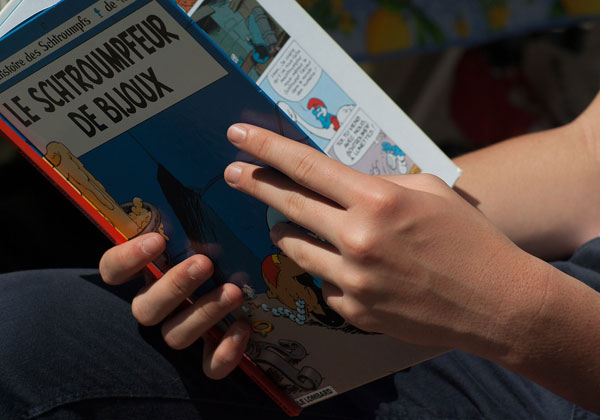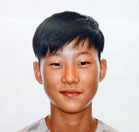The rise of educational comics requires balancing fun and academics

[A comic book. Photo Credit to Pixabay]
Educational comics, while gaining popularity and offering engaging learning experiences, face concerns regarding their potential impact on literacy development.
In January 2025, a South Korean publishing company called MiraeN launched a webtoon service for elementary school students called "ChocoToon."
This service reimagines popular educational comic series in a webtoon format, combining learning content with a digital environment.
It offers features like vocabulary lists and learning checklists to maximize the learning effect.
Due to the continuing popularity of comic books, especially educational comics related to subjects like science and math, many new products using this format are being released.
Comic books have numerous advantages.
Images not only grab attention but also facilitate easier recall of the summary.
Stephen Cary, in his work "Going Graphic," suggests that the visual elements of graphic novels and comics offer considerable advantages to English language learners, as these formats provide them with effective means to understand the printed material they encounter.
The visual nature is particularly useful for language learners or individuals who cannot focus on regular books.
Comics cover a wide range of content topics from science, history, and fantasy that allow readers to learn about new concepts, cultures, and perspectives in an engaging way.
This approach can make learning more engaging and fun than reading about historical events from a textbook.
Abstract ideas can be brought alive through visual storytelling in comics, and they are also simpler to read and recall for individuals of all ages.
According to Stephane Manuel, founder of TrueFiktion, "These comics provide a very rich opportunity to have thoughtful dialogue around a moment in history."
Even though comic books have gained increasing popularity thanks to educational comics, their impacts on the growth of literacy have been raising concerns among some researchers and teachers.
Critics assert that comic books could hinder reading ability and the learning of words since comic books are pictorial and have very short dialogues.
Such a format, according to them, does not engage children to read and understand long and complicated sentences.
A study by Carnegie Mellon University and University of Maryland researchers, reported in the journal "npj Science of Learning," validates these concerns.
The study found that for children and adolescents above elementary school age, books with more pictures than text or very complex images are not improving reading skill and may even discourage reading.
Furthermore, some teachers worry that comic books are too immature and can't push their pupils to their full potential.
Comics are generally believed to be primarily for struggling students, and therefore they could never be utilized to their fullest educational potential.
Thus, the types of fonts used and speech bubble formats used in comics differ from standard paragraphing and punctuation, which could affect children's writing abilities.
There should be a well-balanced practice of reading with consideration of the pros and cons of educational comics.
Suggestions have been made like selecting educational comics that are close to curriculum and encouraging reading of general books on the same topic.
Educational comics can easily inspire children's passion for learning and provide access to various knowledge, but research indicates they should complement rather than replace traditional reading materials.
Many literacy specialists emphasize that parents and teachers should be aware of both the benefits and potential drawbacks of educational comics as they support children in developing comprehensive reading habits.
Studies continue to examine the long-term effects of comic-based learning on literacy development as educational comics evolve in both print and digital formats.

- Sean Jung / Grade 10 Session 1
- Eric Hamber Secondary School

![THE HERALD STUDENT REPORTERS [US]](/assets/images/logo_student_us.png)
![THE HERALD STUDENT REPORTERS [Canada]](/assets/images/logo_student_ca.png)
